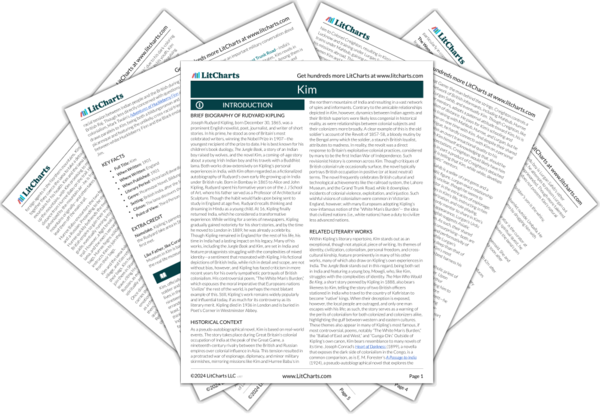This passage reveals the historical bias of the novel’s narrator, or author. Though widely regarded as a justified response to colonial aggression, Kipling’s depiction of the Indian Mutiny, delivered by the old soldier, presents the British as victims of violence, not perpetuators of it. Though the soldier’s perspective is not an impossible one, Kipling’s foregrounding of it points to his own colonial prejudices, leaving no room for anti-colonial narratives.
